
views
X
Expert Source
Pradeep Adatrow, DDS, MSBoard Certified Dentist & Oral Surgeon
Expert Interview. 30 September 2020.
When left untreated, tonsil stones can cause bad breath, sore throat, ear pain, and difficulty swallowing. Tonsil stones can be prevented by practicing healthy oral hygiene, drinking plenty of water, eating healthy foods, or, in persistent cases, having your tonsils removed (tonsillectomy).
Practicing Healthy Oral Hygiene
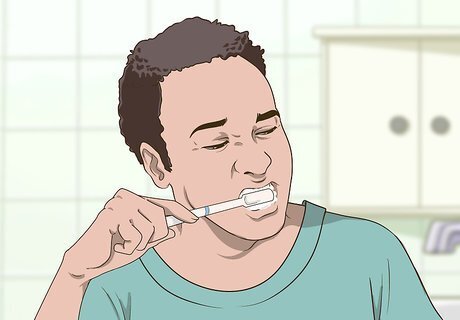
Brush your teeth regularly. Failure to maintain good oral hygiene is a primary cause of tonsil stones. Brushing your teeth in the morning, before bedtime, and after every meal is the foundation of healthy oral hygiene and first step in preventing tonsil stones. This will help eliminate food particles and bacteria that can collect in your tonsils’ nooks and crannies. Remember to brush your tongue as well, since it can harbor easy to miss bacteria, mucus, and food residue.
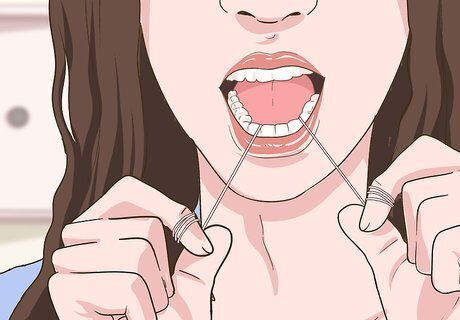
Floss your teeth at least once per day. Flossing daily can help prevent tonsil stones by eliminating tartar and plaque buildup. Tonsil stones are similar in composition and structure to the biofilm that forms between your teeth, and both can cause prolonged bad breath. So, if you’re trying to prevent tonsil stones in order to deal with bad breath, it’s important to eliminate that same bio-matter where it forms elsewhere in your mouth.

Gargle with mouthwash without alcohol. Mouthwashes that contain alcohol can lead to dry mouth, which increases the risk for bacteria buildup and tonsil stones. Go with a brand that is alcohol free, and use it at least once a day. Alternatively, gargle with a salt and warm water rinse. Gargling with saltwater can also help ease any discomfort caused by tonsillitis, or infection of the tonsils, which can accompany tonsil stones.
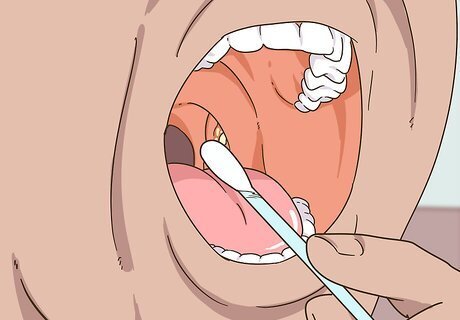
Remove tonsil stones using a cotton swab. If you notice tonsil stones forming, remove them in order to keep from becoming sources of further discomfort, bad breath, or infection. Wet both ends of a cotton swab, and gently massage your tonsils to free up the stones. Gargle afterwards to remove any leftover particles. If you have a low-pressure oral water irrigator, you can use it weekly to wash away any particles that might get caught in your tonsils’ folds.
Managing Your Diet and Overall Health

Drink plenty of water. Ensure you drink the recommended amount of water, which is about 13 cups per day for men and 9 cups for women. Drink plenty of fluids throughout the day in order to help rinse away bacteria and prevent dry mouth. Both can contribute to the formation of tonsil stones. Swap out sodas, sports drinks, energy drinks, and fruit juices for water, since sugar can increase bacteria buildup. Alcohol dehydrates and causes dry mouth, so limit your alcohol consumption and be sure to brush well after to drinking, especially if you have recurring tonsil stones.
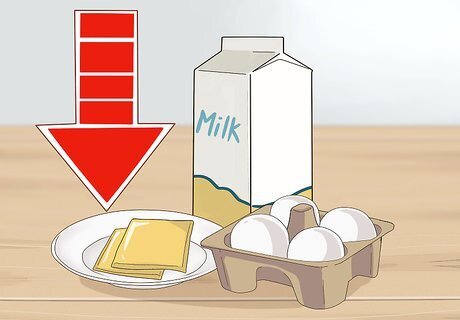
Eat a healthy, balanced diet. Consider limiting your sugar and dairy intake. Consuming too many sugary foods increases tartar, plaque, and bacteria buildup. Dairy products also promote oral bacterial growth, so make sure to give your teeth a good brush after drinking milk or consuming other dairy.
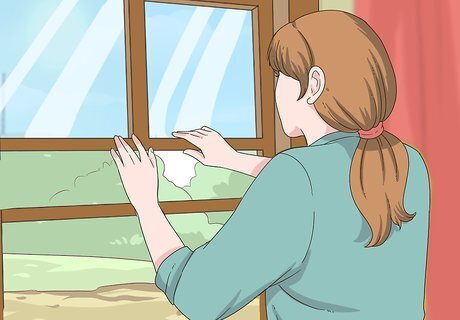
Improve your nasal health. Nasal allergies, head colds, and post-nasal drips can cause mucus to accumulate in the back of your throat. Mucus increases your exposure to oral bacteria, and contributes to the development of tonsil stones. If you frequently experience problems with nasal allergies, try reducing your exposure to pollen by closing windows and spending more time indoors during allergy season, and keep the air moist in your home using a humidifier.
Consulting with Medical Professionals

Visit your dentist at least once per year. A routine checkup and cleaning from your dentist is a key part of good oral hygiene. Professionally cleaning your teeth and gums, removing tartar and plaque buildup, and treating periodontal or gum disease will help cut down the risk of tonsil stones. Further, you can check in with your dentist if stones are a recurring problem and at-home options haven’t worked. Depending on your oral health, you may need to visit your dentist more frequently than every 12 months. They may recommend coming twice a year or more.

Visit an allergist or your doctor about persistent nasal problems. If you have difficulty managing allergies on your own or frequently get sick, work with your healthcare provider. Your physician may prescribe medications that can help you better manage problems with mucus, nasal allergies, and frequent infections. You can also get an allergy test in order to determine what specific allergens to avoid.
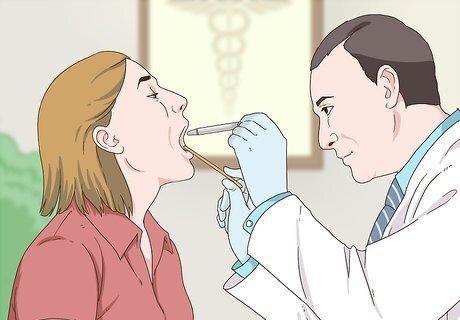
Consult with your healthcare provider about undergoing tonsillectomy. Some tonsils are more prone to developing stones due to their shape and position. If stones and tonsillitis are recurring problems that interfere with daily life, you might have to consider tonsillectomy, or the surgical removal of your tonsils. Your physician or dentist can perform an examination and determine whether tonsillectomy will help prevent the development of tonsil stones based on the status of your oral health. It is believed that tonsils are part of the immune system since they are made up of special cells that prevent and fight infections. It is believed by some that removing them may impair your immune system, though research does not support this.



















Comments
0 comment